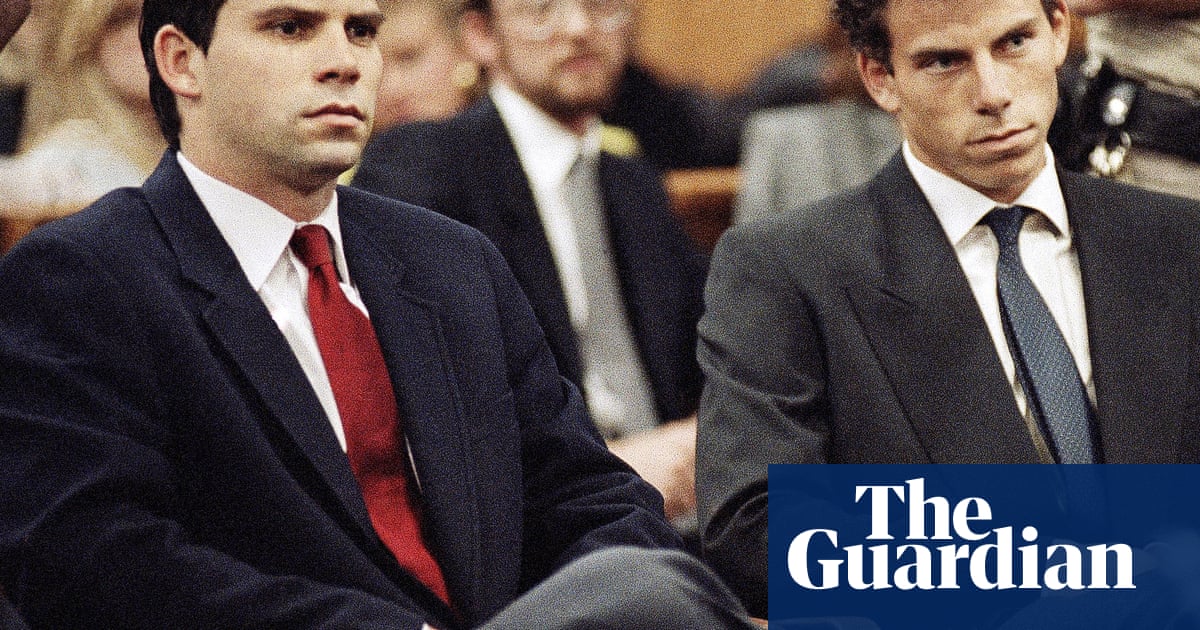After months of delays, a hearing starts on Tuesday to decide whether Erik and Lyle Menendez should get a chance at freedom after serving nearly 30 years in prison for the double murder of their parents.
ALos Angelesjudge will preside over the resentencing hearing that is expected to last two days. If he shortens their sentences, the brothers would still need approval from the state’s parole board to get out of prison. They could then potentially go free on time served.
They were sentenced in 1996 to life in prison without the possibility of parole for murdering their father, Jose Menendez, and mother, Kitty Menendez, in their Beverly Hills home in 1989. The brothers were 18 and 21 at the time of the killings. While defense attorneys argued the brothers acted out of self-defense after years of sexual abuse by their father, prosecutors said the brothers killed their parents for a multimillion-dollar inheritance.
Due towildfires in the LA area, and disputes between LA prosecutors and defense attorneys, the hearings were delayed for months.
The case has captured the public’s attention for decades – and last year, the Netflix drama Monsters: The Lyle and Erik Menendez Story and documentary The Menendez Brothers brought new attention to the case. Supporters of the brothers have flown in from across the country to attend rallies and hearings in the past few months.
The resentencing hearing will center on whether the brothers have been rehabilitated in prison and deserve a lesser sentence of 50 years to life. That would make them eligible for parole under California’s youthful offender law because they committed the crime under the age of 26.
Their defense attorney, Mark Geragos, said in April he may ask the judge to reduce their charges to manslaughter, potentially allowing them to be immediately released.
Geragos said last Friday that he plans to call at least seven family members to testify at the hearings. As in previous proceedings, the brothers will appear virtually. It was unclear if they will testify.
Los Angeles county prosecutors will be arguing against the resentencing. They say the brothers have not taken complete responsibility for the crime. Prosecutors will likely reference the preliminary findings from a forensic psychologist who looked at whether the brothers pose a risk to society if released, an assessment ordered by the state parole board. The admissibility of the results in court have been a point of contention for the two sides, as they have not been made public, but the judge said last Friday that some parts can be included.
The previous LA county district attorney, George Gascón, had opened the door to possible freedom for the brothers last fall by asking a judge to reduce their sentences. His office said the case would have been handled differently today due to modern understandings of sexual abuse and trauma, and the brothers’ rehabilitation over three decades in prison.
A resentencing petition laid out by Gascón focused on the brothers’ accomplishments and rehabilitation. The brothers’ attorneys say their clients have worked hard to better themselves and give back to the prison community. The extended Menendez family, with the exception of an uncle who died in March, has said they fully forgive the brothers for what they did and want them to be freed.
Since their conviction, the brothers have gotten an education, participated in self-help classes and started various support groups for their fellow prisoners.
Sign up toHeadlines US
Get the most important US headlines and highlights emailed direct to you every morning
after newsletter promotion
The current district attorney, Nathan Hochman, reversed course from Gascón and opposed the brothers’ resentencing.
Hochman’s office has said it does not believe that the brothers were sexually abused by their father.
Prosecutors also say the brothers have not admitted to lying during their trial.
Recently, they cited the forensic psychologist’s analysis that said the brothers had recently broken prison rules by smuggling cellphones inside, which Hochman argued demonstrated an inability to regulate their own behavior. It came to the conclusion that they were “moderately more likely” than others to engage in violence in the community, Hochman said.
With Hochman in charge, prosecutors attempted twice to withdraw their office’s resentencing petition. Los Angeles county superior court judge Michael Jesic ruled both times that the resentencing hearings could continue despite their opposition.
The judge could decide on the resentencing from the bench during the hearing or issue a written ruling later.
